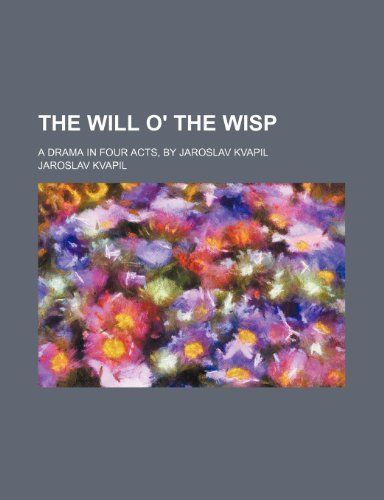
The Will O' the Wisp
Purchase of this book includes free trial access to www.million-books.com where you can read more than a million books for free. This is an OCR edition with typos. Excerpt from book: TO BE, OR NOT TO BE, ?AGAIN By Morris Ler.oy Arnold IN this age of warfare it is refreshing to find an intellectual antagonist who challenges one to a combat in the Shakespearean arena not for the joy of the fighting, but for the sake of the trophy Truth. Mr. Charles M. Street in a recent article on Hamlet's soliloquy, 'To be, or not to be, ' contends (1) that the speech is overheard by the King and Polonius, and (2) that Hamlet, conscious of their presence, pretends to soliloquize for the benefit of Claudius. Thus, this speech, hitherto regarded as the greatest soliloquy in English drama, is now presented as no soliloquy at all, in the technical sense of the term, but rather as a feigned soliloquy, in which Hamlet, pretending to meditate, purposely plays upon the suspicions and superstitions of the lurking King. Such an interpretation stimulates because of its novelty. Mr. Street courteously reminds me that I have not considered this interpretation in my study, f and he challenges me to answer six points which he makes in behalf of his contention. Therefore I take up the gauntlet, conscious that there is no glory in my position, as I am constrained to represent that most unpopular of types, a conservative. It is picturesque to be the herald of a new faith; it is a dreary task to champion an ancient tradition. I must needs be spokesman for the ordinary, obvious, generally accepted tradition and interpretation of a famous passage. Further, Mr. Street makes the very unlawyer- like stipulation that I pay no 'undue respect to any array of critics or stage tradition howsoever authoritative.' I must take the traditional view, but not go to tradition for my authority. Granted. Let us go to Shakespeare. But first let us go to Mr. Street. First?Says Mr. Street, 'Shakespeare has gi